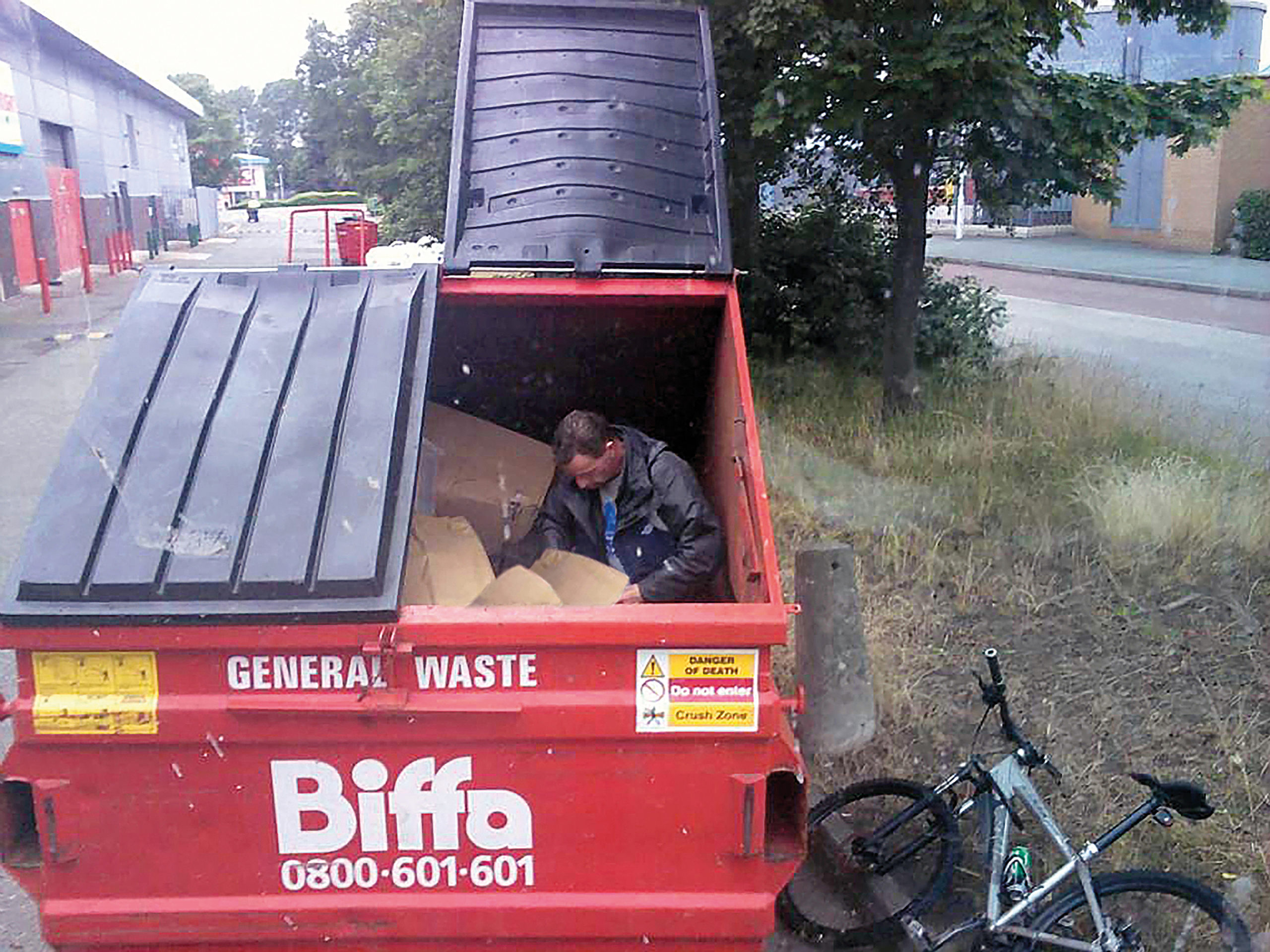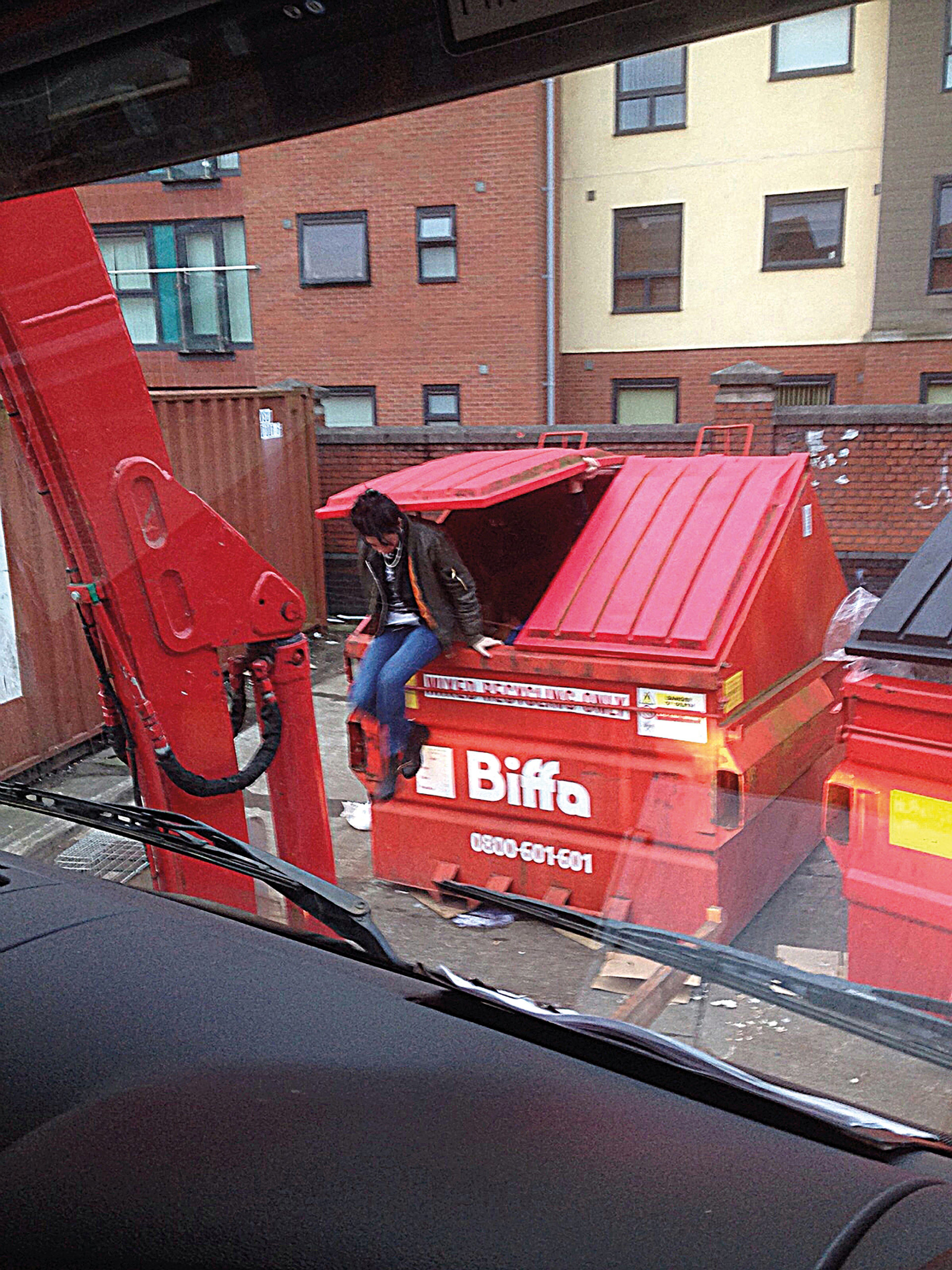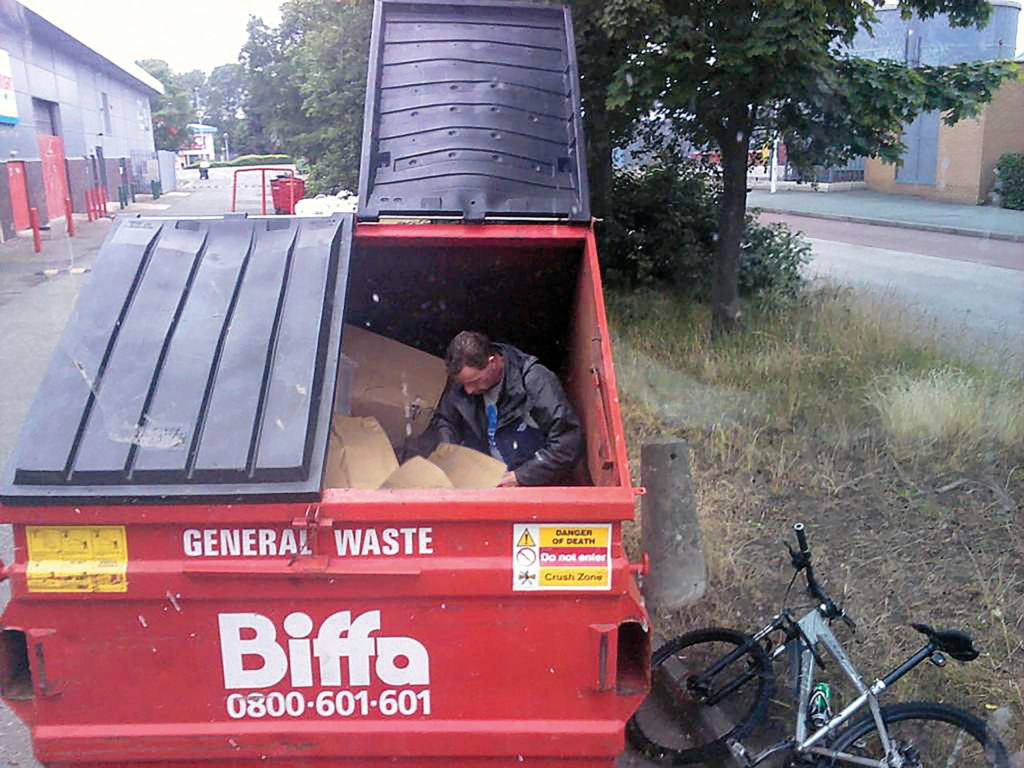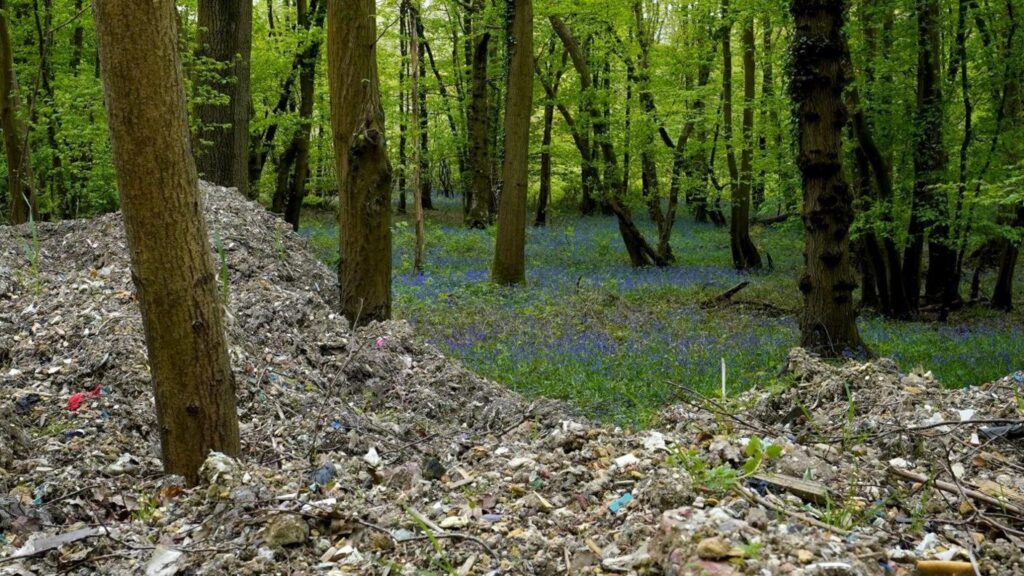Undertaken by waste management company Biffa, the Open University and the Chartered Institution of Wastes Management (CIWM), the study attributes the rising statistics to an upsurge in destitution across the UK, with a 70% increase in the number of people sleeping rough since 2014.

Dr Toni Gladding of The Open University said: “This new research, which has been updated from 2014, shows that people sleeping in bins remains an issue of real concern, and there have been several fatalities in the past few years.
“Once people enter a bin to sleep the risk of harm is a real possibility.
“There needs to be a nationally agreed approach to this issue which will likely consist of a partnership between the customer who is the waste producer, homelessness services and the waste operator to help prevent these tragic incidences.”
The research suggests only 40% of commercial bins are fitted with working locks, the same percentage as in 2014 despite the introduction of industry guidelines.
Seventy per cent of encounters occurred between January and June, suggesting the problem is not seasonal, with homeless people seeking shelter in bins all year round.
At least seven people are known to have died while sleeping in bins in the past five years, according to data from the Health and Safety Executive.
Methodology
The research was undertaken via an online survey, launched in August 2019 (see letsrecycle.com story).
“Once people enter a bin to sleep the risk of harm is a real possibility”
Fifty-seven responses from companies operating in the UK were received, and of these 10 were identified as local authorities and eight as waste management companies.
Other respondents declined to leave contact information.
Urgent action
The report has called for a collaborative approach amongst waste companies, waste producers, homeless charities and the public to tackle the issue.

Michael Topham, chief executive of Biffa, said: “Urgent action is required now to raise awareness of the dangers of seeking shelter in bins.
“This new research highlights the need not only for the waste industry to take more responsibility for its own practices, but crucially for it to work with its customers to help tackle the issue.
“We are committed to leading this approach to promote policies and procedures for widespread adoption to prevent further tragedies.
“We hope this report highlights the issues that we all need to address and acts as a call to action.”
Recommendations
The study includes several recommendations to prevent serious injuries.
It suggests training and written policies should be put in place for employees working at waste management companies.
The advice includes ensuring bins are secure and inaccessible, either fitted with locks or held in a locked area, putting danger stickers on bins to suit a range of languages and reading abilities and contacting homelessness charities when a homeless person is found near a bin.
It also suggests processes should be in place at waste management businesses to report when people are discovered in bins.









Subscribe for free